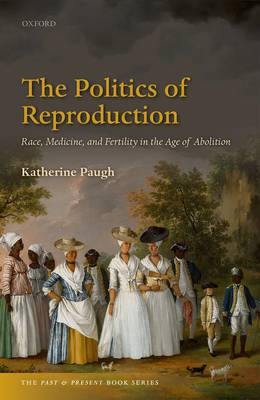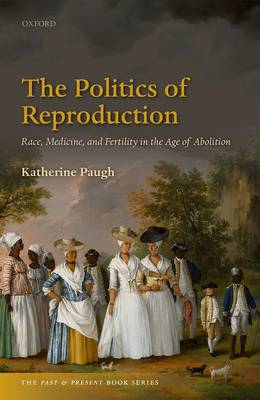
Je cadeautjes zeker op tijd in huis hebben voor de feestdagen? Kom langs in onze winkels en vind het perfecte geschenk!
- Afhalen na 1 uur in een winkel met voorraad
- Gratis thuislevering in België vanaf € 30
- Ruim aanbod met 7 miljoen producten
Je cadeautjes zeker op tijd in huis hebben voor de feestdagen? Kom langs in onze winkels en vind het perfecte geschenk!
- Afhalen na 1 uur in een winkel met voorraad
- Gratis thuislevering in België vanaf € 30
- Ruim aanbod met 7 miljoen producten
Zoeken
The Politics of Reproduction
Race, Medicine, and Fertility in the Age of Abolition
Katherine (Associate Professor of History, University of Oxford)
€ 170,95
+ 341 punten
Omschrijving
In the age of abolition, British politicians, slave owners, doctors, and missionaries were promoting motherhood among women working on Caribbean plantations, as a way to sustain the labor force in the absence of new African recruits. Paugh recounts the story of a Barbadian midwife to explore how this effort was experienced by Afro-Caribbean women.
Specificaties
Betrokkenen
- Auteur(s):
- Uitgeverij:
Inhoud
- Aantal bladzijden:
- 276
- Reeks:
Eigenschappen
- Productcode (EAN):
- 9780198789789
- Verschijningsdatum:
- 27/04/2017
- Uitvoering:
- Hardcover
- Afmetingen:
- 241 mm x 182 mm
- Gewicht:
- 580 g

Alleen bij Standaard Boekhandel
+ 341 punten op je klantenkaart van Standaard Boekhandel
Beoordelingen
We publiceren alleen reviews die voldoen aan de voorwaarden voor reviews. Bekijk onze voorwaarden voor reviews.









